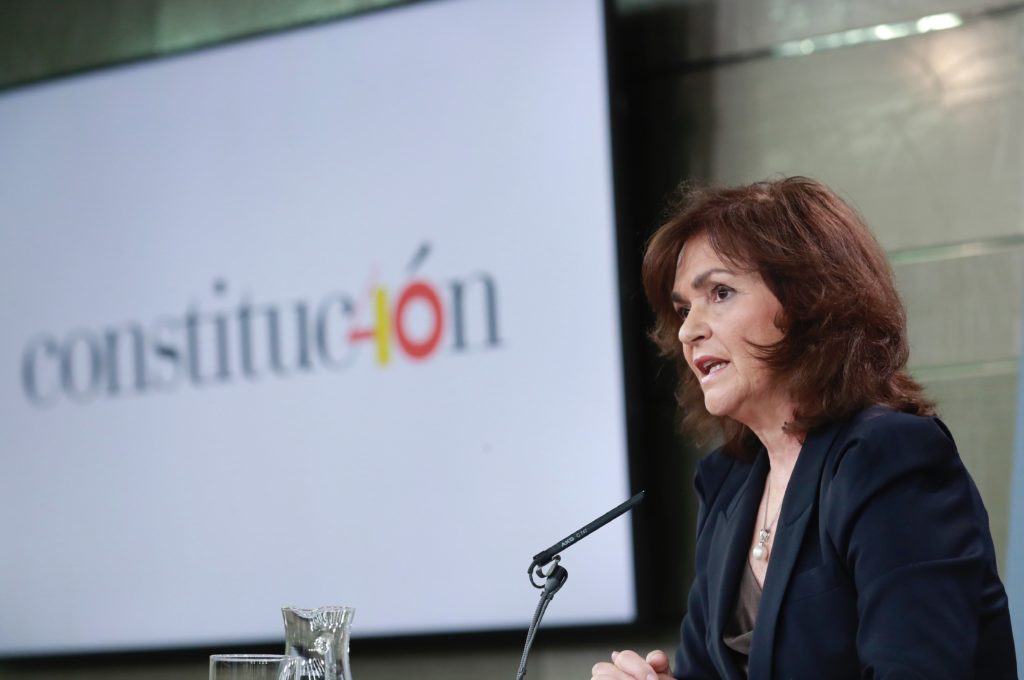08.02.2019 - 16:30
|
Actualització: 08.02.2019 - 17:30
The fragile dialogue that helped bring down tensions between the Catalan and Spanish governments after the suspended declaration of independence in 2017 is now hanging by a thread.
A proposal from Madrid to have an observer attend and coordinate the meetings between Catalan parties sparked outrage among opposition forces in the Spanish parliament, which accused the central government of conceding to the demands of the pro-independence parties.
The Spanish vice president Carmen Calvo on Friday ruled out any talks on self-determination or new concessions to the pro-independence parties in the talks to pass the general budget for 2019. “It makes no sense to prolong a situation when there’s an element that can’t be solved” said Calvo, referring to Catalan demands for a vote on self-determination.
Against democracy and politics
The spokeswoman of the Catalan Government, Elsa Artadi, lamented that the Socialist Government in Madrid “has decided to abandon any negotiation and give in to those who are against democracy, dialogue and politics”. She also criticized that Pedro Sánchez’s government has lacked “courage to move from rhetoric to reality”.
A fresh chapter in the troubled relationship between the executives seemed to have come about last spring, when the pro-independence parties helped the Socialist leader Pedro Sánchez become Spain’s president after defeating the conservative Mariano Rajoy in a no-confidence vote.
For months, Sánchez’s government has tried to secure the support of the pro-independence parties in order to pass the general budget for 2019—the most crucial vote since he came to power.


